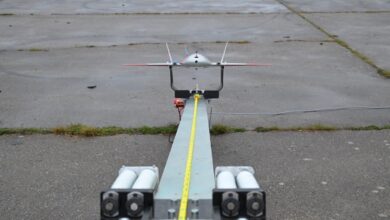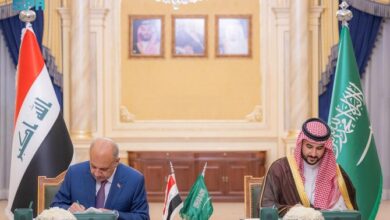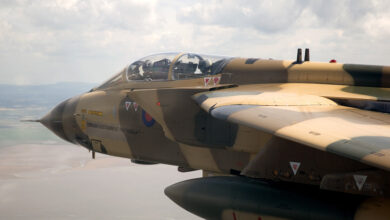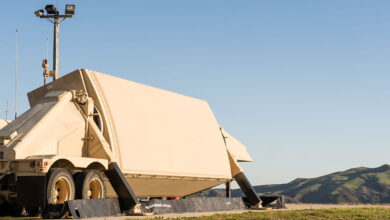
By Courtney Freer
LSE Kuwait Programme
In a series of late-night royal decrees on Monday, Saudi Crown Prince and Defense Minister Mohammad bin Salman replaced several top military commanders, including the chief of staff, as well as the heads of the ground forces and air defenses. No specific reason was given for the sackings, but I posit three key drivers of this change.
First, while Saudi Arabia’s protracted involvement in Yemen, now entering its third year, was initially cited as the reason for this shake-up, the changes are in fact part of a larger plan to overhaul the kingdom’s military, which has been in the works for years.
Indeed, while the war in Yemen has exposed weaknesses within the Saudi military, King Salman has approved a larger plan to develop the defense ministry. Unsurprisingly, then, the decrees introduce a new strategy to improve its structure, organization and governance.
For his part, Mohammed bin Salman has for years expressed his desire to advance his country’s military, lamenting that high military spending has not led to correspondingly high military performance. In a 2016 interview, the then-deputy crown prince opined, “it is unacceptable that we are the world’s third or fourth biggest country in military spending but our army is ranked in the twenties. There is a problem.” Having an efficient and effective fighting force has become a higher priority for the Saudis as their rivalry with Iran, often seen as more powerful militarily, becomes more heated.
Because military contracts have been a source of corruption in the past, restructuring the entire military system could mitigate the risk of inappropriate spending and therefore fits in line with Mohammed bin Salman’s anti-corruption drive.
Second, the timing of this decree, weeks before Mohammed bin Salman’s visits to major military equipment suppliers, the United Kingdom (March 7), France and the United States (March 19), is certainly relevant. Mohammed bin Salman will likely try to assuage Western fears about his country’s continued involvement in Yemen, in addition to urging Western partners to aid in the restructuring of his country’s defense ministry.
As of Monday, Lockheed Martin and Saudi Arabia had signed a joint venture to help create jobs in the kingdom through the manufacture of 150 Black Hawks locally, since the long-term goal is to localize military procurement, increasing locally made military equipment from the current two percent to 50 percent. Since the Gulf Cooperation Council has ceased to be a successful regional security body due to the ongoing crisis, Gulf states seem to be looking increasingly outside of the region for security guarantees – as evidenced by recent news from Kuwait that it is considering inviting a permanent British military presence.
Third, this change is yet another example of Mohammad bin Salman’s style of leadership – a swift departure from the more deliberate decision-making of his predecessors. Another decree issued simultaneously with the military changes named Tamader al-Rammah deputy labor minister for social affairs – the highest-ranking position a woman has ever held in Saudi Arabia.
Other new deputy ministers were also named at the economy and interior ministries, and new mayors were named for Riyadh and Mecca. Prince Turki bin Talal, brother of formerly detained Prince Alwaleed bin Talal, was also named a deputy governor of Asir province, and another royal decree named Khaled Biyari in a new position as assistant to the defense minister for executive affairs, signaling new involvement of the private sector in the military’s revamp.
Importantly, these actions send the message that Mohammed bin Salman’s Saudi Arabia is one that is inclusive of the private sector, of women, and more representative of the kingdom’s young population – or at least this perception is what he seeks to promote. Indeed, one day before the announcement, women were granted the ability to apply for positions in the army and police, on 12 conditions.
With clerics and the business sector under his control after arrests in September and October, Mohammed bin Salman has now put his stamp on the defense ministry, bringing in a new, younger cohort; it remains to be seen how much change will result on the ground, however.
 Courtney Freer is a Research Officer at the Kuwait Programme at LSE and an advisor for Gulf State Analytics. You can follow her on Twitter: @courtneyfreer
Courtney Freer is a Research Officer at the Kuwait Programme at LSE and an advisor for Gulf State Analytics. You can follow her on Twitter: @courtneyfreer
All views and opinions expressed in this article are those of the author, and do not necessarily reflect the opinions or positions of The Defense Post.
The Defense Post aims to publish a wide range of high-quality opinion and analysis from a diverse array of people – do you want to send us yours? Click here to submit an Op-Ed.











